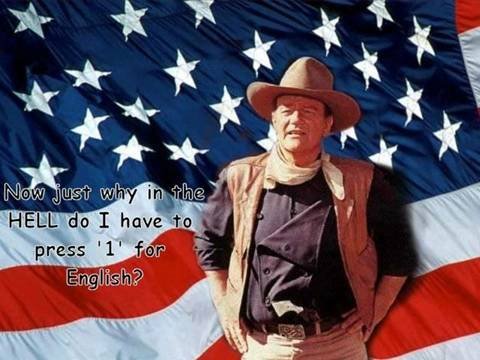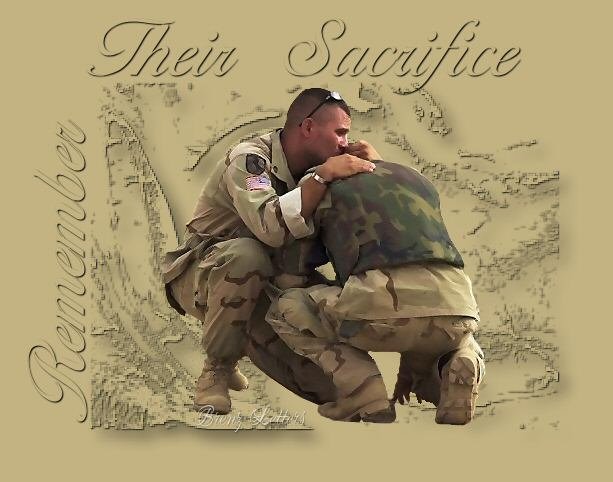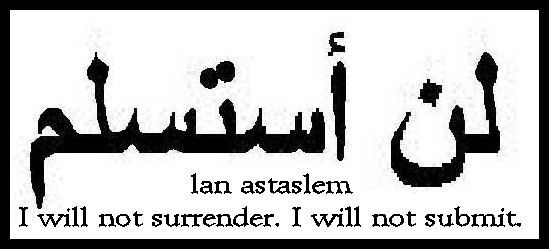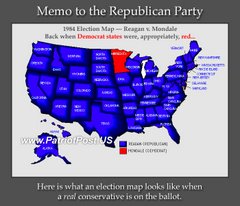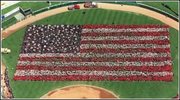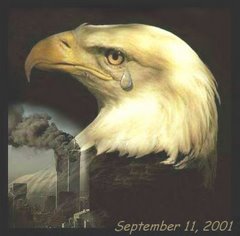
So I got into my car this afternoon to go pick my children up from school. I've been in major Hugh Hewitt withdrawal recently because my building just doesn't allow his station to come in clearly, but the station is on in my car. I hear part of this speech and put out a call asking if anyone had heard it because, had GWB been communicating like this all along, perceptions might be a lot different regarding the GWOT. I'll be the first to admit he's been decidedly weak in his communication regarding this issue. This speech, though, swiped from
Snooper, is right on and more like it should have preceded it.
Here, then, is the speech:
President Bush Addresses the 89th Annual National Convention of the American Legion Reno-Sparks Convention Center
Reno, Nevada
For Immediate Release
Office of the Press Secretary
August 28, 2007
10:14 A.M. PDT
THE PRESIDENT: Thank you all very much. (Applause.) Thank you all. Please be seated. Commander, thank you very much for the invitation to come. I'm honored to be here. I'm honored to represent Post 77 of Houston, Texas. (Applause.) I hope my fellow Texans behave themselves here in Reno. (Laughter.) You won't? Okay, well -- (Laughter.)
 I appreciate the fact that nearly every community in America has been enriched by the American Legion and the Women's Auxiliary. I appreciate the work that you do to remind our citizens about the blessings of America. You have the profound gratitude of the President and the people of this country. Thank you for your service. (Applause.)
I appreciate the fact that nearly every community in America has been enriched by the American Legion and the Women's Auxiliary. I appreciate the work that you do to remind our citizens about the blessings of America. You have the profound gratitude of the President and the people of this country. Thank you for your service. (Applause.)
I particularly appreciate the work you do with our country's young. I like the fact that you have a oratorical competition that, according to your organization, helps Americans communicate their ideas clearly and effectively. Paul suggested I might want to sign up. (Laughter and applause.) I appreciate the fact that through Boys and Girls Nation you teach young people who are interested in public service about how Washington really works. (Laughter.) I'm not there. (Laughter and applause.)
We meet today at a critical time for our country. America is engaged in a great ideological struggle -- fighting Islamic extremists across the globe. Today I want to talk to you and to the American people about a key aspect of the struggle: the fight for the future of the Middle East. I'm going to explain why defeating the extremists in this troubled region is essential to our nation's security, and why success in Iraq is vital to winning this larger ideological battle. (Applause.)
I do want to thank your Commander. It's been my pleasure to work with Paul. He's been in the White House a lot, along with the Executive Director, John Sommer. He's represented you well, and he's served with distinction. (Applause.)
I thank JoAnn Cronin, the National President of the American Legion Auxiliary. I appreciate Bob Spanogle, the National Adjutant of the American Legion. I want to welcome the Governor of the great state of Nevada with us today -- Governor Jim Gibbons is with us. Mr. Governor, thanks for coming. (Applause.) The Congressman from this district is the fine representative named Dean Heller. His wife Lynne sang the National Anthem. Thank you both for being here today. (Applause.)
I'm honored to be in the presence of those who wear our nation's uniform. I thank General Charles Campbell, Commanding General U.S. Army Forces Command, for joining us. Major General Gale Pollock, Acting Surgeon General of the U.S. Army. And for all those who wear the uniform, thank you for volunteering to defend this nation in a time of peril. I'm proud to be your Commander-in-Chief. (Applause.)
For nearly a century, Presidents have looked to the American Legion to provide an example of vision, valor, and love of country. In times of peace, you counseled vigilance. In times of war, you counseled resolve. And in every era, you have carried the well-being of our men and women in uniform in your prayers and in your hearts. We're grateful to your service.
You have an appreciation for how special America is because you have defended her. You know how fragile freedom is because you have seen it under attack. And you know the pain of war because you have lost friends and family members on distant shores -- including those whose fates are still unknown. We must not, and we will not, end our search until we have accounted for every member of our Armed Forces from every war and every corner of the Earth. (Applause.)
I appreciate your efforts to honor the American flag. There are those who say the flag is just a piece of cloth. That's not the view of those who bled for it and saw it drape the caskets of some of our finest men and women. It was the American flag that we planted proudly on Iwo Jima, that first graced the silver surface of the moon. The country is careful to protect many things because of what they symbolize. Surely we can find a way to show equal respect for the symbol that our soldiers and sailors and airmen and Marines and Coast Guard's men and women have risked their lives for -- the flag of our nation. So today I join the Legion in calling on the United States Congress to make protection of the flag the law of our land. (Applause.)
I also thank you for your strong support of our nation's veterans. We share a common goal: to make sure our veterans have all the help they need. (Applause.) We have worked together to achieve that goal. The budget this year that I submitted is nearly $87 billion for our veterans. That's a 77-percent increase since I took office. It is the highest level of support for veterans in America's history. (Applause.)
I know health care is a concern of yours, and that's why we've extended treatment to a million additional veterans, including hundreds of thousands of men and women returning from Afghanistan and Iraq. We're building new VA facilities in places where veterans are returning [sic] so more veterans can get top-quality health care closer to your home. We've expanded grants to help homeless veterans in all 50 states and the District of Columbia. My point is this: The veterans were there when we needed them -- and this administration will be with the veterans when they need us. (Applause.)
Perhaps the most important duty that Legion members undertake is to serve as living reminders that a great country has great responsibilities. Once again, America finds itself a nation at war. Once again, we're called to assume the mantle of global leadership. And once again, the American Legion is walking point. I thank you for your fervent and enthusiastic defense of our men and women in uniform as they take the fight to the enemy in Afghanistan, in Iraq, and across the world. They're the finest military on Earth -- and we are right to be proud of them. (Applause.)
Many people in this country are asking whether the fight underway today is worth it. This is not the first time Americans have asked that question. We always enter wars reluctantly -- yet we have fought whenever dangers came. We fought when turmoil in Europe threatened to shroud the world in darkness. America sent its military to fight two bitter and bloody conflicts -- we did what we had to do to get the job done. We fought when powers in Asia attacked our country and our allies. We sent Americans to restore the peace -- and we did what we had to do to get the job done. And we responded when radicals and extremists attacked our homeland in the first ideological war of the 21st century. We toppled two regimes in Afghanistan and Iraq that gave harbor to terrorists, defied the international community, and threatened the security of our nation. And now we're working to help build free and secure societies in their place -- and like the past, we will do what we have to do to get the job done. (Applause.)
We've learned from history that dangers in other parts of the world -- such as Europe and Asia -- directly affect our security here at home. On September the 11th, 2001, we learned that there's another region of the world that directly threatens the security of the American people -- and that is the Middle East. America has enduring and vital interests in the region. Throughout our history, the American people have had strong links with this region -- through ties of commerce and education and faith. Long before oil and gas were discovered in the Middle East the region was a key source of trade. It is the home to three of the world's great religions. It remains a strategic crossroads for the world.
Yet the hope and prosperity that transformed other parts of the world in the 20th century has bypassed too many in the Middle East. For too long, the world was content to ignore forms of government in this region -- in the name of stability. The result was that a generation of young people grew up with little hope to improve their lives, and many fell under the sway of violent Islamic extremism. The terrorist movement multiplied in strength, and bitterness that had simmered for years boiled into violence across the world. The cradle of civilization became the home of the suicide bomber. And resentments that began on the streets of the Middle East are now killing innocent people in train stations and airplanes and office buildings around the world.
The murderers and beheaders are not the true face of Islam; they are the face of evil. They seek to exploit religion as a path to power and a means to dominate the Middle East. The violent Islamic radicalism that inspires them has two main strains. One is Sunni extremism, embodied by al Qaida and its terrorist allies. Their organization advances a vision that rejects tolerance, crushes all dissent, and justifies the murder of innocent men, women, and children in the pursuit of political power. We saw this vision in the brutal rule of the Taliban in Afghanistan, where women were publicly whipped, men were beaten for missing prayer meetings, and young girls could not go to school.
These extremists hope to impose that same dark vision across the Middle East by raising up a violent and radical caliphate that spans from Spain to Indonesia. So they kill fellow Muslims in places like Algeria and Jordan and Egypt and Saudi Arabia in an attempt to undermine their governments. And they kill Americans because they know we stand in their way. And that is why they attacked U.S. embassies in Africa in 1998, and killed sailors aboard the USS Cole in 2001 [sic]. And that is why they killed nearly 3,000 people on 9/11. And that is why they plot to attack us again. And that is why we must stay in the fight until the fight is won. (Applause.)
The other strain of radicalism in the Middle East is Shia extremism, supported and embodied by the regime that sits in Tehran. Iran has long been a source of trouble in the region. It is the world's leading state sponsor of terrorism. Iran backs Hezbollah who are trying to undermine the democratic government of Lebanon. Iran funds terrorist groups like Hamas and the Palestinian Islamic Jihad, which murder the innocent, and target Israel, and destabilize the Palestinian territories. Iran is sending arms to the Taliban in Afghanistan, which could be used to attack American and NATO troops. Iran has arrested visiting American scholars who have committed no crimes and pose no threat to their regime. And Iran's active pursuit of technology that could lead to nuclear weapons threatens to put a region already known for instability and violence under the shadow of a nuclear holocaust.
Iran's actions threaten the security of nations everywhere. And that is why the United States is rallying friends and allies around the world to isolate the regime, to impose economic sanctions. We will confront this danger before it is too late. (Applause.)
I want our fellow citizens to consider what would happen if these forces of radicalism and extremism are allowed to drive us out of the Middle East. The region would be dramatically transformed in a way that could imperil the civilized world. Extremists of all strains would be emboldened by the knowledge that they forced America to retreat. Terrorists could have more safe havens to conduct attacks on Americans and our friends and allies. Iran could conclude that we were weak -- and could not stop them from gaining nuclear weapons. And once Iran had nuclear weapons, it would set off a nuclear arms race in the region.
Extremists would control a key part of the world's energy supply, could blackmail and sabotage the global economy. They could use billions of dollars of oil revenues to buy weapons and pursue their deadly ambitions. Our allies in the region would be under greater siege by the enemies of freedom. Early movements toward democracy in the region would be violently reversed. This scenario would be a disaster for the people of the Middle East, a danger to our friends and allies, and a direct threat to American peace and security. This is what the extremists plan. For the sake of our own security, we'll pursue our enemies, we'll persevere and we will prevail. (Applause.)
In the short-term, we're using all elements of American power to protect the American people by taking the fight to the enemy. Our troops are carrying out operations day by day to bring the terrorists to justice. We're keeping the pressure on them. We're forcing them to move. Our law enforcement and intelligence professionals are working to cut off terrorist financing and disrupt their networks. Our diplomats are rallying our friends and allies throughout the region to share intelligence and to tighten security and to rout out the extremists hiding in their midst. Every day we work to protect the American people. Our strategy is this: We will fight them over there so we do not have to face them in the United States of America. (Applause.)
In the long-term, we are advancing freedom and liberty as the alternative to the ideologies of hatred and repression. We seek a Middle East of secure democratic states that are at peace with one another, that are participating in the global markets, and that are partners in this fight against the extremists and radicals. We seek to dry up the stream of recruits for al Qaeda and other extremists by helping nations offer their people a path to a more hopeful future. We seek an Iran whose government is accountable to its people -- instead of to leaders who promote terror and pursue the technology that could be used to develop nuclear weapons. We seek to advance a two-state solution for the Israelis and Palestinians so they can live side by side in peace and security. We seek justice and dignity and human rights for all the people of the Middle East.
Achieving this future requires hard work and strategic patience over many years. Yet our security depends on it. We have done this kind of work before in Europe. We have done this kind of work before in Japan. We have done this kind of work before -- and it can be done again. (Applause.)
The future course of the Middle East will turn heavily on the outcome of the fight in Iraq. Iraq is at the heart of the Middle East. And the two dangerous strains of extremism vying for control of the Middle East have now closed in on this country in an effort to bring down the young democracy.
In Iraq, Sunni extremists, led by al Qaeda, are staging sensational attacks on innocent men, women, and children in an attempt to stoke sectarian violence. Their operatives have assassinated those seeking to build a new future for the Iraqi people. Their targets include everyone they consider infidels -- including Christians and Jews and Yezidis and Shia, and even fellow Sunnis who do not share their radical distortion of Islam. Their ranks include foreign fighters who travel to Iraq through Syria. Their operations seek to create images of chaos and carnage to break the will of the American people. These killers don't understand our country. America does not give in to thugs and assassins -- and America will not abandon Iraq in its hour of need. (Applause.)
Shia extremists, backed by Iran, are training Iraqis to carry out attacks on our forces and the Iraqi people. Members of the Qods Force of Iran's Islamic Revolutionary Guard Corps are supplying extremist groups with funding and weapons, including sophisticated IEDs. And with the assistance of Hezbollah, they've provided training for these violent forces inside of Iraq. Recently, coalition forces seized 240-millimeter rockets that had been manufactured in Iran this year and that had been provided to Iraqi extremist groups by Iranian agents. The attacks on our bases and our troops by Iranian-supplied munitions have increased in the last few months -- despite pledges by Iran to help stabilize the security situation in Iraq.
Some say Iran's leaders are not aware of what members of their own regime are doing. Others say Iran's leaders are actively seeking to provoke the West. Either way, they cannot escape responsibility for aiding attacks against coalition forces and the murder of innocent Iraqis. The Iranian regime must halt these actions. And until it does, I will take actions necessary to protect our troops. I have authorized our military commanders in Iraq to confront Tehran's murderous activities. (Applause.)
For all those who ask whether the fight in Iraq is worth it, imagine an Iraq where militia groups backed by Iran control large parts of the country. Imagine an Iraq where al Qaeda has established sanctuaries to safely plot future attacks on targets all over the world, including America. We've seen what these enemies will do when American forces are actively engaged in Iraq. And we can envision what they would do if we -- if they were emboldened by American forces in retreat.
The challenge in Iraq comes down to this: Either the forces of extremism succeed, or the forces of freedom succeed. Either our enemies advance their interests in Iraq, or we advance our interests. The most important and immediate way to counter the ambitions of al Qaeda and Iran and other forces of instability and terror is to win the fight in Iraq. (Applause.)
Together our coalition has achieved great things in Iraq. We toppled one of the world's most brutal and dangerous dictators. This world is better off without Saddam Hussein in power. (Applause.) The Iraqi people held three national elections, choosing a transitional government, adopting the most progressive and democratic constitution in the Arab world, and then electing a government under that constitution. Despite endless threats from the car bombers and assassins, nearly 12 million Iraqi citizens came out to vote in a show of hope and solidarity that we should never forget.
In 2006, a thinking enemy struck back. The extremists provoked a level of sectarian violence that threatened to unravel the democratic gains the Iraqi people had made. Momentum was shifting to the extremists. The Iraqi people saw that their government could not protect them, or deliver basic services. Many Shia turned to militias for security. Many Sunnis did not see a place for them in the new Iraq. Baghdad was descending into chaos. And one of our military intelligence analysts wrote that Anbar Province -- al Qaeda's base in Iraq -- was lost to the enemy.
Given the stakes in Iraq, given the fact that what happens in Iraq matters in the United States, it became clear that we needed to adjust our approach to address these changes on the ground. So in January, I laid out a new strategy. This strategy was designed to help bring security to the Iraqi population, especially in Baghdad. It was designed to help clear the terrorists out of Iraqi cities and communities so that local governments could retake control, resume basic services, and help revive businesses in their communities. It was designed to give the Iraqi security forces time to grow in size and capability so that they can ultimately bring security to their country. It was designed to provide a secure environment in which national reconciliation could take place. And it was designed to encourage more members of the international community to recognize their interest in a free and democratic Iraq -- and to do more to help make that possible.
The central objective of this strategy was to aid the rise of an Iraqi government that can protect its people, deliver basic services, and be an ally in this war on terror. And we understood that none of these goals could be met until the Iraqi people feel safer in their own homes and neighborhoods.
To carry out this new strategy I sent reinforcements to Baghdad and Anbar Province. I put a new commander in place -- General David Petraeus, an expert on counterinsurgency. Those reinforcements have been fully operational for just over two months. Yet there are unmistakable signs that our strategy is achieving the objectives we set out. Our new strategy is showing results in terms of security. Our forces are in the fight all over Iraq. Since January, each month we have captured or killed an average of more than 1,500 al Qaeda terrorists and other enemies of Iraq's elected government. (Applause.) Al Qaeda is being displaced from former strongholds in Baghdad and Anbar and Diyala provinces.
We've conducted operations against Iranian agents supplying lethal munitions to extremist groups. We've targeted Shia death squads and their supply networks. The Prime Minister of Iraq, Prime Minister Maliki, has courageously committed to pursue the forces of evil and destruction. Sectarian violence has sharply decreased in Baghdad. The momentum is now on our side. The surge is seizing the initiative from the enemy -- and handing it to the Iraqi people.
Our new strategy is also showing results in places where it matters most -- the cities and neighborhoods where ordinary Iraqis live. In these areas, Iraqis are increasingly reaching accommodations with each other, with the coalition, and with the government in Baghdad. This reconciliation is coming from the bottom up. It's having an impact in the fight against the enemy and it's building a solid foundation for a democratic Iraq.
In Anbar, the province that had been thought to be lost to the enemy, is increasingly becoming more peaceful because members of local Sunnis are turning against al Qaeda. They're sick and tired of the dark vision of these murderers. Local sheikhs have joined the American forces to drive the terrorists out of the capital city of Ramadi and elsewhere. Residents are providing critical intelligence, and tribesmen have joined the Iraqi police and security forces.
People want to live in peace. Mothers want to raise their children in a peaceful environment. The local Iraqis, given a chance, are turning against these murderers and extremists. (Applause.)
Many Iraqis who once felt marginalized in a free Iraq are rejoining the political process, and now it's the enemy of a free Iraq that is being left on the margins. Last month, provincial officials reopened parts of the war-damaged government center with the help of one of our provincial reconstruction teams. Similar scenes are taking place all across Anbar, the province once thought lost. Virtually every city and every town in the province now has a mayor and a municipal council. Local officials are forming ties with the central government in Baghdad because these Sunni leaders now see a role for their people in a new Iraq. And in an encouraging sign, the central government is beginning to respond with funding for vital services and reconstruction, and increased security forces.
In other provinces, there are also signs of this kind of bottom-up progress. In Diyala Province, the city of Baqubah reopened six banks, providing residents with capital for the local economy. In Ninewa Province, local officials have established a commission to investigate corruption, with a local judge empowered to pursue charges of fraud and racketeering. These are signs that our strategy to encourage political cooperation at the grassroots level is working. And over time, see, and over time, as the Iraqis take control over their lives at the local level, they will demand more action from their national leaders in Baghdad. That's how democracy works. And that's why the encouraging developments at the local level are so important for Iraq's future.
At the moment, our new strategy is showing fewer results at the national level. Iraq is overcoming decades of tyranny and deprivation, which left scars on Iraq's people and their psyche. The serious sectarian violence of 2006 and early 2007 further tore at the fabric of Iraqi society, increasing distrust between Iraq's ethnic and religious communities. In the midst of the security challenges, Iraq's leaders are being asked to resolve political issues as complex and emotional as the struggle for civil rights in our own country. So it is no wonder that progress is halting, and people are often frustrated. The result is that it has been harder than anticipated for Iraqis to meet the legislative benchmarks on which we have all been focused.
In my weekly consultations with Ambassador Crocker we discuss these challenges. We also discuss the signs of hope. We're encouraged by the agreement reached Sunday night by the top leaders in Iraq's government. They agree on several draft pieces of legislation that are at the core of national reconciliation -- and are among the benchmarks identified by the United States Congress. For example, the draft law on de-Baathification reform addresses the question of how Iraqis will deal with their past. The draft legislation on provincial powers tackles how Iraqis will map out their future. These measures still have to be passed by the Iraqi parliament. Yet the agreement shows that Iraq's leaders can put aside their differences, they can sit down together, and they can work out tough issues central to the fate of their country.
The agreement by Iraq's leaders was significant for another reason. It thanks the coalition for our sacrifices, and recognizes the importance of maintaining a coalition presence in Iraq. It also calls for the development of a long-term relationship with the United States. I welcome this invitation. I've committed our government to negotiating such a partnership soon. This long-term relationship need not require the level of engagement that we have in Iraq today. But it can serve the common interests of both Iraq and the United States -- to combat terrorism, and to help bring stability to an important country and region.
Iraq's government still has more work to do to meet many of its legislative benchmarks. Yet it's also important to note that many of the goals behind these benchmarks are being achieved without legislation. Here's an example: We believed that an equitable sharing of oil revenues would require the Iraqi parliament to pass an oil-sharing law. In fact, the national government is already sharing oil revenues with the provinces -- despite the fact that no formal law has been passed. Iraq's government is making gains in other important areas. Electricity production is improving. The parliament has passed about 60 pieces of legislation, including a $41-billion budget. Despite the slow progress in the Iraqi parliament -- here's the evidence -- Iraq as a whole is moving forward.
Our strategy is also showing results at the international level. The United Nations and Iraq -- with support from the International Monetary Fund, the World Bank, and nations from around the globe -- have finalized an International Compact for Iraq that will bring new economic assistance and debt relief in exchange for aggressive economic reforms. So far, the Iraqis have made significant progress in meeting the IMF's economic benchmarks. The Iraqis have convened a Neighbors Conference that's bringing together nations in the region. The goal is to help the Iraqis through specific security and economic and diplomatic cooperation.
As part of these diplomatic initiatives, Prime Minister Maliki has met with counterparts in Turkey, Syria, and Iran to urge the support for his nation. Saudi Arabia is looking to open a new embassy in Baghdad. The United Nations Security Council has decided to expand its mission in Iraq, and is seeking to help with local elections and reconciliation. The United Nations will soon name a new high-ranking envoy to Iraq, to coordinate the UN's expanded effort to that country. Here's what I'm telling you -- the international community increasingly understands the importance of a free Iraq. They understand a free Iraq is important for world peace. And that is why we'll continue to rally the world for this noble and necessary cause. (Applause.)
All these developments are hopeful -- they're hopeful for Iraq, and they're hopeful for the Middle East, and they're hopeful for peace. In two weeks, General Petraeus and Ambassador Crocker will return to Washington to deliver an interim assessment of the situation on the ground and the prospects for the future. This status report comes less than three months after the surge became fully operational. It will likely assess what's going well in Iraq, and what needs to be improved, and what changes we need to make in our strategy and force deployments in the months ahead. Congress asked for this assessment. Congress should listen to it in its entirety. And I ask members of the Congress to withhold any conclusions until they can hear these men out. (Applause.)
Unfortunately, some who had complained about a lack of security in Iraq are now attempting to change the terms of the debate. Their argument used to be that security was bad, so the surge has failed. Now their argument seems to be security is better, so the surge has failed. They disregard the political advances on the local level, and instead change -- charge that the slow pace of legislative progress on the national level proves our strategy has not worked. This argument gets it backwards. Improving security is the precondition for making gains in other areas.
Senator Joe Lieberman puts it this way: "While it is true there is no pure 'military' solution to the violence in Iraq, it is worth remembering that neither is there any pure 'political' solution." Security progress must come first. And only then can political progress follow -- first locally, and then in Baghdad. So it's going to take time for the recent progress we have seen in security to translate into political progress. In short, it makes no sense to respond to military progress by claiming that we have failed because Iraq's parliament has yet to pass every law it said it would.
The American people know how difficult democracy can be. Our own country has an advanced and sophisticated political system in place. Yet even we can't pass a budget on time -- and we've had 200 years of practice. (Applause.) Prime Minister Maliki and other Iraqi leaders are dealing with the issues far more controversial and complicated, and they are trying to do it all at once, after decades of a brutal dictatorship. Iraq's leaders aren't perfect. But they were elected by their people. They want what we want -- a free Iraq that fights terrorists instead of harboring them. And leaders in Washington need to look for ways to help our Iraqi allies succeed -- not excuses for abandoning them. (Applause.)
The challenge is before us -- the challenge before us is hard, but America can meet it. And the conflict has come at a cost, on behalf of a cause that is right and essential to the American people. It's a noble cause. It is a just cause. It is a necessary cause. I wouldn't have asked the young men and women of our military to go in harm's way if I didn't think success in Iraq was necessary for the security of the United States of America. (Applause.) I know it can be difficult to see sometimes, but what happens on the streets of Baghdad and in the neighborhoods of Anbar has a direct impact on the safety of Americans here at home. And that is why we're in this fight. And that's why we'll stay in the fight, and that is why we're going to win this fight. (Applause.)
One of the great blessings of this country is that our men and women in uniform understand it. One of those young men was Specialist First Class Stephen Davis of Fayetteville, North Carolina. Stephen came from a proud military family. His father and grandfather were veterans. His younger brother, his mother, and her father were all stationed with him in Iraq.
When Stephen was killed by an insurgent grenade on the Fourth of July, their hearts were broken. And yet, somehow this remarkable family found a way to put aside their grief and continue to serve our country. Stephen's mother said that Stephen was proud of what they were doing in Iraq -- so six days after the funeral, she went back on duty as a medic. His father, Buck, a Gulf War veteran, says he wants to go to Iraq today. This family represents the best of the American spirit -- a spirit that shows we have the grit and the will to defend the American people. (Applause.)
One day years from now, another president will be in a room like this. That president will look out upon a sea of caps worn by those who show a quiet pride in their service. Some in that audience will include people who won the fight against fascism and Nazism and communism. You'll be joined by younger veterans who have fought in places like Kandahar and Ramadi. And just like you, the new generation of veterans will be able to say proudly they held fast against determined and ruthless enemies, helped salvage an entire region from tyranny and terror, and made a safer world for the American people.
To those future members of the American Legion, and to all of you, I offer the gratitude of our nation, and offer my prayers for a future of peace. Thank you. And may God America. (Applause.)
END 10:59 A.M. PDT
Sphere: Related Content






